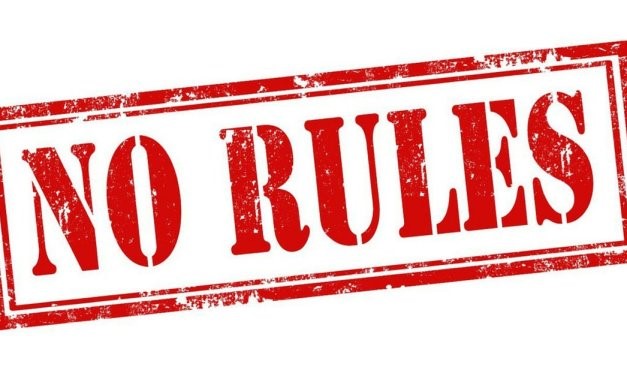
self-publishing
The Cult of Traditional Publishing Part 3: What do you really want?
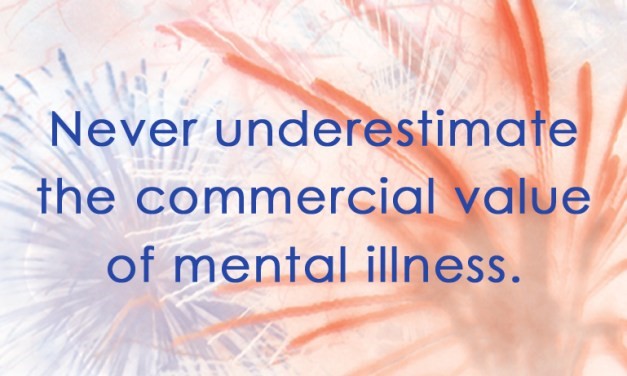
The Cult of Traditional Publishing Part 2: People don’t talk like that

★★★
“I’ve always wanted to write a book!” I hear quite a bit.
“Do it!” I say.
Writing a book has the lowest barrier to entry of any craft, hobby, art, free-time waster I can think of. Read more
The Cult of Traditional Publishing Part 1: The math don’t lie
★★★
I didn’t actually do the math.
I didn’t have the numbers for one side of the colon. But based on the proliferation of newsgroups, online critique groups, publishing forums in 2008, and the number of such denizens all trying to get published, I could guess. And it was huge.
Then there was me. 1 : x6214
Mormons aren’t a cult. I know because I’m a Mormon and I was in a cult. The cult had me far more brainwashed than Mormonism ever did or ever will. Read more
Veni, vidi, vici.
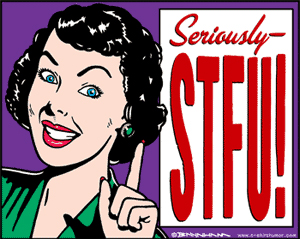 I had several ideas for this post’s title:
I had several ideas for this post’s title:
“I’m not one of you.”
“Repeating myself”
“Tired of the sound of my own voice”
“Being silent”
“Serial starter”
Anyway, all of them are pertinent to my point, but they all mean different things. I’ll take them one by one.
Printgasm BINGO
I totally don’t blame Scalzi for being sick of the arguments for self/digital publishing. I self/digital publish and I’m sick of the evangelizing, too. (Because most of the arguments are just shitty logic.)
HOWEVER.
There’s another side of the Electronic Publishing BINGO card: Printgasm BINGO, for those who believe that reading ebooks is just one step away from civilization sliding back into the primordial ooze.
![“Printgasm” BINGO card. Text: “B1: I can dog-ear the pages. B2 [in various colors]: I can highlight passages in books in color. B3: I can write margin notes in a book. B4: I can put a Post-It note in a book. B5: I can use pretty bookmarks. I1: I like the feel of a book. I2: I like the smell of a book. I3: Books are prettier than electronic files. I4: I can show off the cover to strangers. I5: I can look at books on shelves. N1: I can read books in the bookstore while I drink my coffee. N2: You’ll pry my print books from my cold, dead hands! N3: I’ve never read an ebook, but I hate them. Nya nya nya. HATE! N4: I like to see the books in my TBR stack. N5: I don’t need a machine to read books. G1: Books keep printers employed. G2: I can buy books used. G3: I can re-sell my books. G4: I can lend a book. G5: Books don’t have DRM. O1: I can burn a book for emergency fuel. O2: I can take a book to the beach. O3: I can use pages for emergency toilet paper. O4: I can read a book in the bathtub. O5: Books won’t break if dropped or sat on.](https://moriahjovan.com/talesofdunham/wp-content/uploads/2011/03/20110321_bingocard-scaled.jpg)
First rule of self-publishing:
Get a professional editor.
Period.
No excuse.
I don’t care how good your beta readers and critique partners are.
I don’t care if you’re a traditionally published midlist author going out on your own.
Get a professional editor.
You want to self-publish? Put in the time and the effort and the money, just like a big publisher would. This is a business and you are creating a product to sell to people. Give them a good product.
That product begins with a professional editor.
This Will Not Look Good on My Resume
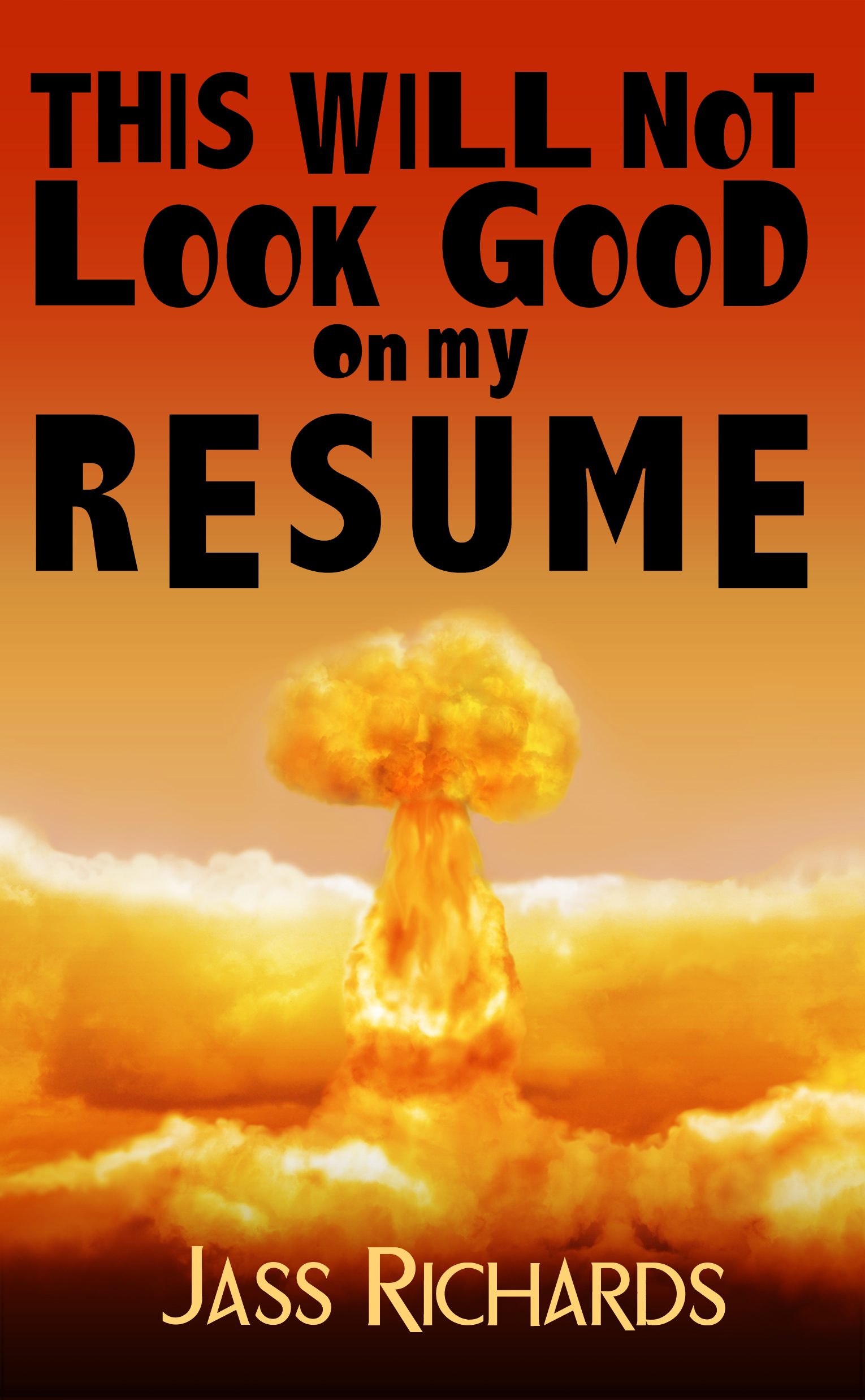 If you want some droll (adult) humor, go buy this. Seriously. It’s the funniest thing I’ve read this year, and I’m not sure, but it may be the funniest thing I’ve ever read, period.
If you want some droll (adult) humor, go buy this. Seriously. It’s the funniest thing I’ve read this year, and I’m not sure, but it may be the funniest thing I’ve ever read, period.
Amazon (print or Kindle)
Smashwords
“Everyone gets fired at least once in their life. And if not, well, they’re just not trying very hard. And we all think of brilliant and immature ‘shoulda saids’ and ‘shoulda dones’ for weeks after. (Okay, years.) In this collection of loosely related stories, Brett shows again and again that getting fired is really quite easy.”
Selling shovels
You will notice I haven’t been posting much at all, much less my thoughts on ebooks and publishing. Wanna know why? I’m too busy with my burgeoning business to put any thought into a) what’s wrong with publishing (because why do I care?); b) how to go about formatting ebooks (because that changes week to week); and c) wondering if I’m ever going to get my historical swashbuckler researched and written (because I’m a writer, dammit!).
In case anybody cares, these are my current random thoughts, none of which rate the time to explore in a full-on blog post (plus, I’ve said it all before):
1) Writers: You’re screwed unless you put out your own stuff and you can market it. The old days are gone. “Getting” published is fine if that’s what you need to validate your soul. If you want better odds on getting to readers and making a little money, do it yourself. But dammit, do it right!
2) Writers: Remember that the people who made money in the gold rush didn’t make it panning for gold, chasing a vein that didn’t exist. The people selling the shovels made all the money. Learn a new skill and sell some shovels. You aren’t going to make a livable income writing for da man. Just don’t make any plans to leave your day job.
3) Book designers: Stop trying to format ebooks on a print paradigm. Ebooks are not print books. They don’t serve the same function. It’s like trying to apply a print paradigm to audiobooks. Stop it. Learn how to format serviceable, good-looking ebooks and forget about Teh Fancy.
4) Editors: Go freelance. Market your name. Make the authors who hire you put your name in the book so you can establish your brand. The curation of books in the future will depend on the editor, not the author, not the publishing house.
5) Indexers: You have a bright and shiny new field to explore. Learn how to index digitally. It’s called anchor tags.
6) Publishers: Get your metadata in gear. Seriously.
7) Publishers: The first publisher to chapter-and-verse its digital textbooks/reference/nonfiction will win the prize. What do I mean? I’ll tell you. Pick up a Bible. Any Bible, any translation, any size, any publisher. Go to John 3:16. That’s what I mean. Develop a system. Patent/trademark it then license it. Make it the standard of any good digital nonfiction book, the way good indexing is. Indexers, see #5.
That is all. I have a mountain of work to get done before I leave for NY next week.
Free agency
Mormon publishing is a small world, but since I only hover on the outskirts of the community as a fiction writer who is Mormon and not as a writer of Mormon fiction (albeit I have Mormon characters), I don’t have much invested in the state of the Mormon art.
Currently I’m involved in a discussion on the Association for Mormon Letters blog that led to these comments:
Author Annette Lyon said:
Angela also hit it right on the head when she said that it’s a bit tricky naming names and titles when you’re one of the LDS writers yourself. It was a different story before I was part of that group. It’s easy to praise, but this is a tiny sandbox. An offhanded remark can make an enemy, so imagine if I were to give an honest review of that other book. Yeah. Let’s just say I don’t dare.
Author Lisa Torcasso Downing said:
Like Angela, I’m hesitant to criticize other writers—and their publishers—because a) who am I to talk? and b) I need those publishers.
There was a level of pathos there that I don’t feel that deeply with unpublished writers of work aimed for the national market, and not a niche one, and such a niche one. Actually, it was the “I need those publishers” that made me hurt.
I can understand Annette’s position, as she’s established and seems to do very well within the niche. But this is what I want to say to Lisa et al: You do not need those publishers.
Look around. eBooks, podcasts, print-on-demand, serial fiction blogs. The landscape is changing drastically and at breathtaking speed.
My question is: Could you do worse on your own? Really?
Just think about it. Please.
I got your suggestions right here.
The Pareto Principle.
Also known as the 80/20 rule, wherein 80% of sales are generated by 20% of the customers. When applied to the way publishing gambles on blockbusters to subsidize its titles that lose money, it might be more or less 20% of the authors make 80% of the sales.
Publishers look for and sign new authors in a neverending search for the next blockbuster book that will sustain the 20%. Very often a new author will be taken on in favor of renewing a current author’s second or third book if the sales don’t meet expectations (which could mean that it did, in fact, make money, but not enough to satisfy the bean counters).
Last month, I was involved in a rigorous discussion on Dear Author, wherein author Courtney Milan likened publishing’s ability to support this model to pooling risk or, more precisely, flood insurance. I found the flood insurance specificity to be flawed and said why, but really I found the whole “risk pooling” argument flawed, but couldn’t articulate it, so I remained agnostic on the subject for the moment.
Now, after having stewed on it for a while, the better (read: more polite) analogy would be research and development—except without so much the development part.
Recently, president of Farrar, Straus & Giroux, Jonathan Galassi, wrote an extraordinarily unorganized, incohesive rant op ed piece in the New York Times concerning whose rights are whose once the publishing house has put its resources into a manuscript to make it a salable product. Quite frankly, other than the amusing fact that he (an editor) wrote an essay not worthy of a high school freshman learning the basics of English composition, I don’t give a shit about what he thinks the publishers’ value-added rights are.
It was his exemplar of an author long dead, into whom marketing resources were invested to make him that success, that struck me as disingenuous. And a non sequitur. Or ignernt. Dude. You do realize that very few new authors are given these kinds of resources, right? Publishers throw new authors at the wall to see who sticks. There is no “development” counterpart to “research.”
Given that, I’ve moved on from a publisher’s resource allocation to be “risk pooling,” to “research and development,” to “shotgun approach.”
Hang with me—I know I’m only about the 1,537th person to say this, but I do have a point.
So yesterday on Teleread, Rich Adin from An American Editor opined that the way to save publishing is to kill the paperback. When the usual suspects (me) broke out with the usual reaction (Are you out of your fucking mind?), he shot back with, “Well, do you have any better ideas?”
Never mind I have no interest one way or another whether publishing remains profitable, and it’s not my job to put little slips in the suggestion box that will be ignored, and people (readers) have been screaming their fool heads off about what they want which would keep publishing profitable and publishing’s just not paying attention, I will tell you how to keep publishing profitable:
Do less research.
Put a little more development into your research.
Quit getting caught up in auction fever.
Embrace the e-book and treat it as deferentially as you do your other formats and respect those people willing to pay for it. Court them. Cultivate them. They have money to spend on books. Really.
The point is to make every title profitable, or as close to it as you can get.
But I don’t really think you care.
Doc McGhee, literary agent
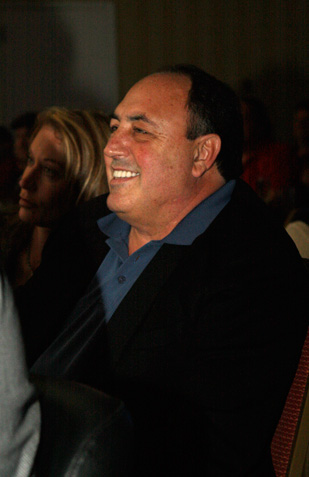 Hang with me for a series of seemingly unrelated factoids.
Hang with me for a series of seemingly unrelated factoids.
- Y’all know who Doc McGhee is, right? He was Mötley Crüe’s manager way back in the day and pretty much made them rich and famous.
- In early November, Amazon “suck[ed] up to literary agents” in a bid to kill its monsterly image. Really? They need literary agents to kill its monsterly image? Who’d’a thunk it?
- Random House, Simon & Schuster, and Hachette all announced they would be holding off releasing ebooks of new (hardcover) titles by six months. The brilliance never ends.
- Stephen Covey just told Simon & Schuster to fuck off. Well. I’m pretty sure that’s not exactly what he said.
- There is one thing an unknown or midlist self-published author can’t get that s/he needs most.
- There is only one thing a bestselling name-brand author has but doesn’t need at all.
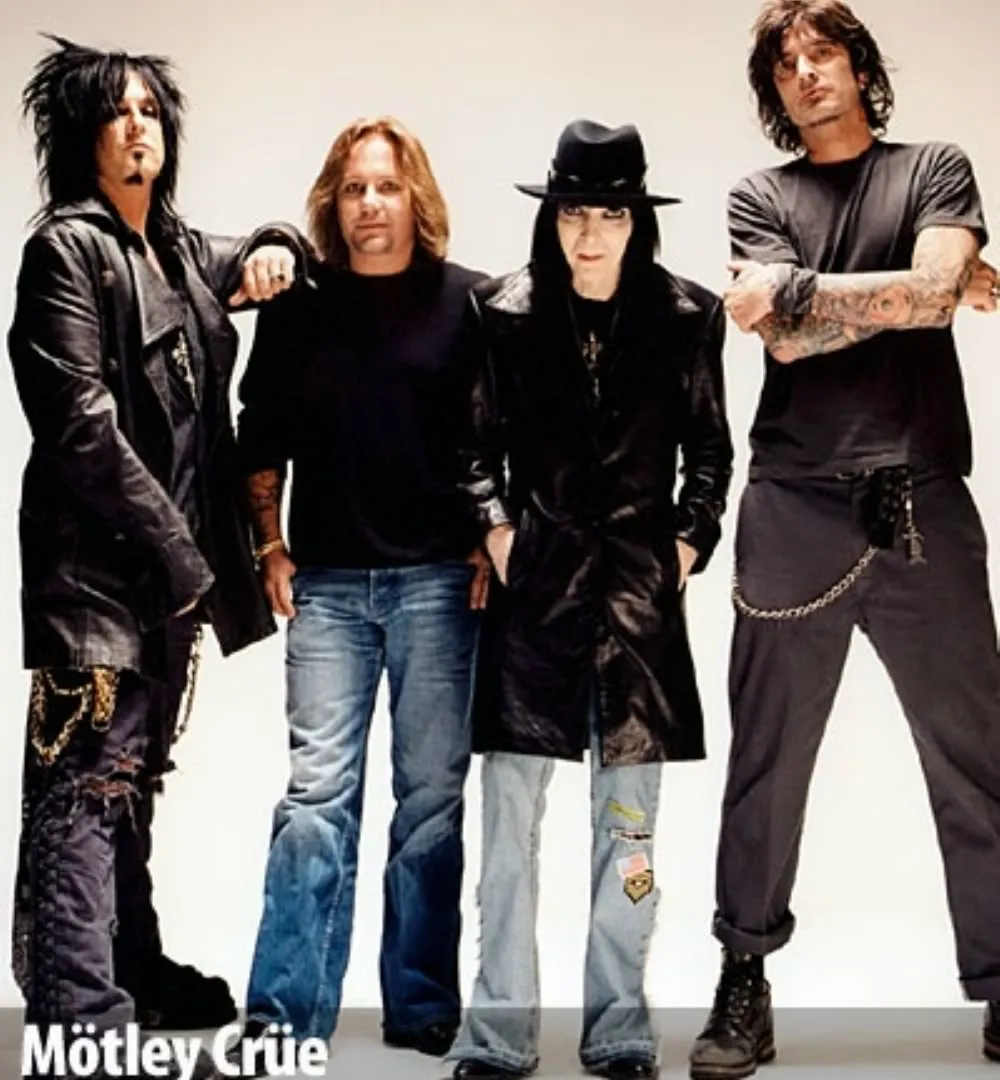
I’m not going to explain any of this stuff. The graphic should make it, well, graphically obvious. Take the above seemingly unrelated items, throw it in with this, and see what you come up with. Assume the writer has not himself arranged for the actual production of his manuscript into print and electronic:
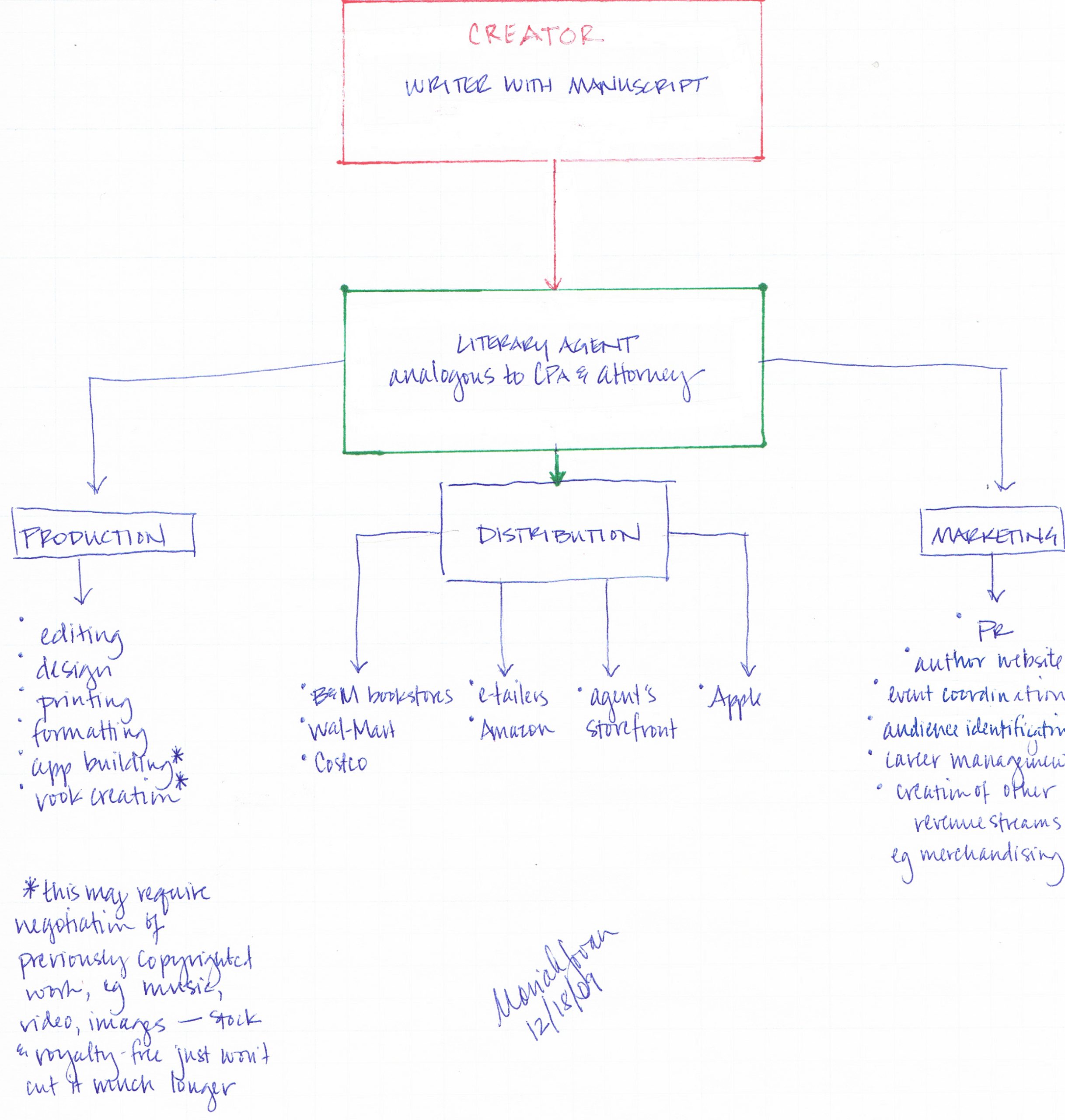
Pop quiz: What word is nowhere to be found in the above flowchart?
I think there’s one agent out there who already knows all this and is slowly, steadily—over weeks, months, years—training his blog readers to start thinking this way.
The difference between how agents work now and how this could work is that a writer would interview agents and hire one (as s/he would an attorney or CPA), as opposed to becoming a supplicant for the agent’s approbation/validation. Agents who now work as if they’re doing writers a favor may not deal with this system well.
On the other hand, even though this is my own plan, I can see that it could land us right back where we are now if writers won’t let go of the thought that they’re powerless and/or only incidental to the book creation process.
Writers, listen up: You’re the creator. There’s power in being the originator of content. Use that power and take control of your own destiny. It’s your work. Take responsibility for its dissemination.
An idea for RWA!
Publishing is changing, the latest clue being Torstar’s vanity publishing line, DellArte (clever me, I said Torstar instead of Harlequin)*.
But we all agree on this one point, right? I mean, publishing can be DOOMED, or it can be METAMORPHOSING, or it can be LA LA LA I CAN’T HEAR YOU!!! but something’s going on.
And we all know MWA, RWA, and all those types delisted Harlequin, which won’t make a damn bit of difference to Harlequin (or Torstar, hee!).
Mrs. Giggles and Karen Scott both get it about the DellArte thing: Say somebody wants to pay to play.
So what?
But then on Karen’s blog the thread turned to what RWA should do about it and she said (I’m sure mostly tongue-in-cheek):
Since the RWA took the step of delisting HQN, they may as well go the whole hog and have a fulsome ‘Vanity Press Is Evil’ programme that informs authors about the pitfalls of going the vanity/self-pubbing route, rather than leaving it to the likes of Writer Beware. Merely delisting HQN is far too much of a passive-aggressive way of tackling this potentially world-altering, humanity-defying problem.
You know what I think RWA should do instead of having a Vanity Press Is Evil program? I think the RWA should have a program to inform, instruct, and help those members who are interested in self-publishing, provide a publishing punchlist, which publishing services cost what (and what’s reasonable), how to do it right, with the understanding that no matter which self-publishing route you go, you are going to pay to play. The opportunities for information mining (read: conference workshops read: ka-ching) are endless.
DellArte would be cast as the devil by default, just on their prices.
But then, that would be a proactive thing to do.
The RWA is reactive. This is an organization that grits its teeth when forced to acknowledge the fact of successful e-publishers like Ellora’s Cave/Cerridwen Press, Samhain Publishing, Loose Id, et al.
Oh well. It was an idea.
You wanna know how I came to self-publishing?
I’m camping out at KatieBabs’s blog today, spilling my guts.
The unmentionable alternative
I am constantly struck by the idea that writers “give up.” What does that mean, exactly? They stop writing? They stop submitting? Or they stop writing because they’re so disheartened by the submitting? My bet’s on that.
Keep on submitting and you will get published.
By “writer,” I mean good, unpublished novelists who don’t, for whatever reason, catch an agent and/or editor’s eye. I’m not talking about the people who don’t hang out on agent and editor blogs, learning every query trick in the book (some of which are flat wrong to some agents and golden to others). These are the writers who assume that the problem is with them, not with the odds.
Write a better book next time.
Oh, fuck that. It’s odds, folks, whether you want to believe it or not—and the odds get worse every week. And that write a better book bullshit? How do you know the one you just wrote is bad?
You don’t.
And then some of you will crack under the discouragement and say, “I write crap.” And you’ll stop submitting. You may even stop writing.
I did that.
I didn’t write crap, per se. I wrote slightly off-tick that didn’t hit the romance formula bullseye exactly right. Yeah, I said it. There’s a formula. I couldn’t hit it, and the misses were near enough that it was sickening.
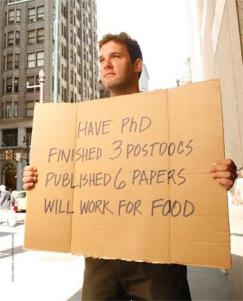 This is not an anti-traditional-publishing rant. This is about writers, about you and your work and how much faith you have in it.
This is not an anti-traditional-publishing rant. This is about writers, about you and your work and how much faith you have in it.
Why are you basing your goals on decisions someone else has to make? And, by extension, why are you waiting for validation based on odds that aren’t in your favor? And why are you acting like a job applicant?
You’re not powerless.
But somehow the idea of taking control of your work and presenting it to the public/the readers/the (gasp) curators is “giving up.”
Because “money always flows to the author.” Fuck that, too.
Yeah, you’ll have to assume some risk. Deal with it.
It pains me to see good writers on agent blogs talking about “when I’m published someday,” because “it will happen if I submit enough and don’t give up” and “I just have to write a better book next time.”
Stop thinking that way and start believing in your product.
Stop thinking you have no power.
Stop thinking like an employee and start thinking like an entrepreneur.
Go make your own damned job.
Update: To clarify, I’m using the term “curators” to describe the self-appointed task of the people who consume the work, like it, and recommend it to others, i.e., the readers/fans, the people who make being The Lone Artist all worth it. I’m not using the term as it has been tossed around the internet for the last year.
My editor likes me!
Scroll down to #64.
064) Stay by Moriah Jovan (MS POLICY), finished July 15.
My faith that I put in Moriah after reading The Proviso was justified. This book is good. Parts of it are excellent. And it’s still only a draft. It still has explicit sex (though not as much) but you should have no other qualms about checking this one out when it’s released in a few months.
Congratulations, Moriah, on a great book. Keep ’em coming.
MS POLICY
I am positively giddy.
Also, independent publishers Zoe Murdock and Riley Noehren and I had a roundtable chat about independent publishing. What we have in common: We’re female, LDS, and publishing ourselves. That transcript (and awesome discussion) are up at A Motley Vision.
Retreads: I rode this train for so long…why?
My blog’s been around long enough now, with enough posts, that nobody wants to go digging through what I had to say a buncha long time ago (centuries in blog time). I’m coming up short on content lately (heh, didja notice?), so I’m going to recycle some of this stuff because now people have been asking me questions I’ve answered in my earliest posts.
This [original article with comments are here] is from June 13, 2008:
I have a buncha novels on my hard drive that have been sitting around collecting dust since, oh, 1990 some time, I guess. In ’93 I wrote one that got me an agent, and another that year that got me a contract—before the publishing company was shut down (because, according to the rumor at the time [get this] it was making too much money and it had been created to take a loss for tax purposes)
(remember Kismet? Anyone? Anyone? Bueller? Bueller?)[dead link]; one in ’95 that got me an early-Saturday-morning phone call from Harlequin to pleasepleaseplease overnight the manuscript; and a fourth novel in ’98 that got me a different agent.In ’95 I wrote my senior thesis; since my major was creative writing and journalism, I wasn’t required to write a paper deconstructing anything. Instead, my assigned professor (a Latin professor, no less!) asked me to write 25 pages of a novel. When I came back a week later with 100 pages, polished, perfect, she switched gears and asked for me to write a paper describing my creative process. She was fascinated with how I’d done what I’d done.
However, that 100 pages was the basis for The Proviso and I knew I had something different, something that would probably never sell. I set out to continue the flow of the short story I had written the semester before. I had become fascinated with a throwaway character (Knox Hilliard) I’d created simply as a tool for the protagonist of the story (Leah Wincott) to complete the allegory. Knox is a bastard. He would never sell in genre romance and I knew that.
On the other hand, my four attempts at writing romance to spec failed to impress since the three that didn’t get picked up missed something somewhere. So between those four instances of “oh so close but yet so far away” and the impossibility of selling an anti-hero when anti-heroes were de trop, the whole thing got to me. I threw up my hands and said, “No more.” Then I woke up one morning last summer [2007] re-energized.
So today. Just now I’ve read two articles that have left me pursing my lips and thinking maybe it’s just as well I never grabbed the brass ring. As I’ve said before, technology caught up to me and got cheap enough to not break the bank, the atmosphere changed (and is still doing so as more authors get publishing savvy), and I’m older with enough DIY skills and a little money to do it right.
The first takes my breath away with regard to artistic integrity:
In an age when reading for pleasure is declining, book publishers increasingly are counting on their biggest moneymaking writers to crank out books at a rate of at least one a year, right on schedule, and sometimes faster than that.
It takes my breath away because I could probably do that … but why would I want to? And all that for …
I have no words.
As the one person (other than I) who reads this blog already knows, I come down firmly on the side of taking the risks and reaping the rewards. And at this stage of publishing’s evolution, why shouldn’t I?
I drank the Kool-Aid of being A Published Author when there were no other viable options, so I don’t feel my time was wasted at all. At the same time, I watched my author friends churn out three, four, five category romances a year to make a decent living and that I can’t do. I don’t have the discipline or talent to write within those specs and on that timetable.
Li’l ol’ me?
 I’m over at Smashwords blog today, hanging out with Smashwords founder Mark Coker. C’mon over, pull up a chair and we’ll make a drinking game out of the occurrence of the words “indie,” “traditional,” and “NY.”
I’m over at Smashwords blog today, hanging out with Smashwords founder Mark Coker. C’mon over, pull up a chair and we’ll make a drinking game out of the occurrence of the words “indie,” “traditional,” and “NY.”
Oh, wait. I don’t drink. Mountain Dew, please!
This crow needs pepper or sumpin’
 Okay, so remember where I said I wouldn’t put The Proviso on Smashwords because it had special formatting and boo hoo hoo?
Okay, so remember where I said I wouldn’t put The Proviso on Smashwords because it had special formatting and boo hoo hoo?
You know what? I’m a capitalist-pig whore1 and I’m full of shit, too.
Smashwords partnered with Stanza and Stanza’s iPhone store, so naturally I got over my formatting/design hubris immediately and figured out a way to do all my special little touches with your bare-bones Word settings. So, yeah. Apple, bite me. Or rather, let me bite you. The Proviso is now available on your iPhone/iTouch at the Stanza store via Smashwords in EPUB, LRF, MOBI/PRC, PDB (the PalmDoc source file, not the eReader container), and PDF. You can read 30% of it free there, too.
But, erm, be patient. Their servers are very popular at the moment.
Yay Stanza and a big THANKS! to Mark Coker and Bill Kendrick for going out of their way to help me.
______________________________
1. Yeah, I know it was redundant and probably went without saying anyway.
Book Review: Waiting for Spring
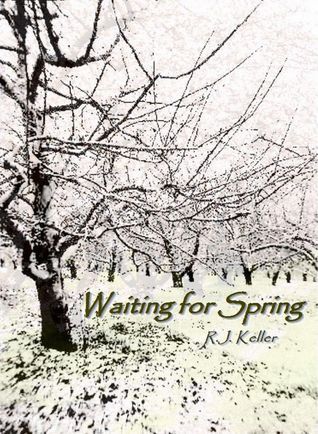 Waiting for Spring
Waiting for Spring
by RJ Keller
It’s been a long time since I threw common sense to the wind and stayed up to finish a book knowing how much I had to do the next day, but not resenting it the next day because it was totally worth it.
This book has no spiffy genre classification. After some thought, I think I’d call it “literary romance.” I don’t know what “women’s fiction” is and I’m not sure I really even know what “chick lit” is, but I’m pretty sure it’s not either of those. And you know, lately, I’ve been very happy with the books that haven’t been easily classified.
Here’s the blurb:
It’s not the kind of pain she can see and smell and wrap with an ace bandage. It’s the kind she tries to numb with sex and work and cleaning-cleaning-cleaning the house. The kind that comes from enduring a lifetime of rejection. First from her mother–whom Tess knows would have aborted her had the law allowed it–then from a string of men whose names she can never remember. And finally, at age thirty-four, from her husband of ten years; the man who once promised to love her forever.
You want angst? I gotcher angst right here, pal. And this is the good stuff, the kind that jerks you around and bashes you over the head and makes you come back for more to see how it all ends. In my experience with literary fiction (one of which was an Oprah pick—sue me), there seems to be some sort of unwritten rule about writing angst, which is to understate it, to let the subtleties of the angst dawn on the reader like a sunrise behind storm clouds.
Problem with that approach is that A) I don’t ever get to know or care about the characters enough to care about their angst and B) their angst isn’t that big of a deal anyway; if the characters clearly don’t care about their angst, why should I? So I’ll read literary fiction, don’t get me wrong, but later, I’ll scratch my head and say (if asked), “Yeah, I think I read that book, but I don’t remember the name or the author.” I just remember dipping my toe in the wading pool of that world once upon a time.
The main character, Tess, has angst and she doesn’t seem to care about her angst, either. But I cared about her angst from the very first paragraph:
They say actions speak louder than words. Maybe. But words do a hell of a lot more damage. Even well-meaning words spoken by well-meaning people.
People like Sister Patricia Mary Theriault. She was my catechism teacher when I was seven years old. Until she ruined my life. [ … ]
Then she told us about the bad soil. [ … ] But the only bad soil I heard about was this:
“As the Sower was scattering the seed, some fell along the path; it was trampled on and–”
Path. Trampled. Bad soil. [ … ]
“Don’t let your hearts become trampled down, children. Keep them soft and fertile so you can feel God’s love inside of you.”
Seven years old. And already I knew I was in some deep shit. The kind that even Sister Patricia couldn’t do anything about.
The twin hyperbolic allegories of “until she ruined my life” and “Seven years old. And already I knew I was in some deep shit” are not, actually, hyperbolic or allegorical, but the reader doesn’t find out why or how until far, far into the book.
You might be tempted to point out that this is simply excellent fiction infrastructure, to which I would say … yeah, I know. But I don’t see that a whole lot anymore. As far as I can tell, the current writing fad is to make me, Random Reader, ask the question and then never let it linger like a good combination of spices on my tongue or let me savor the moment of enlightenment when/if it happens.
Instead, it will ask the question and proceed to answer it for me 2 pages later and sometimes, even worse, will over-explain it in case I didn’t get it fast enough or thoroughly digest all the layers of subtext. I’m very tired of being treated like an idiot in my fiction and, further, I hate that I actually have to call attention to this amazingly annoying trend.
There are quite a few laugh-out-loud lines, sharp. Wry.
When Tess, age 34, takes Brian, age 25, as a lover, they finish, talk, then begin again not long after. Tess observes,
Ready again. Twenty-five. Gotta love that.
Keller also gives the reader glimpses of the spirituality that’s woven all through the tale; they glimmer, like the gold threads in shot fabric:
The stars, he said, were actually souls; all the souls that were too restless to be locked up in heaven. They were so restless that God let them stay outside at night to play.
And when an 8-year-old girl about to take her first communion asks Tess if she believes in God, Tess says:
“Yes, I believe in God. I just … I don’t feel close to him in church.”
“Really? Why’s that?”
I shrugged, even though I knew exactly why. I knew because I’d felt that way since I was a little girl, sitting in my church clothes, listening to the Mass. Trying to feel His presence. Struggling to feel His love. But there was nothing there. Nothing but words I didn’t completely understand and scary status. And then, one beautiful Sunday Spring morning when I was nine years old, something occurred to me. Something I never told anyone else.
He’s not really in here. God doesn’t live inside a building, and that’s all a church is; just a building filled with lots of words. [ … ]
Because Anne [of Green Gables] said that if she really wanted to talk to God, a real true prayer, then she’d have to go outside to do it. She’s need to surround herself with God’s creation, with His beauty; drink it in and let it fill her up. And then she could look heavenward and just feel a prayer.
The narrative itself is choppy, with sentences and paragraphs written in fits and starts, which perfectly mirrors Tess’s personality and her coping mechanisms (particularly her “personality disorder”). In fact, a good portion of Tess’s internal dialog and her observations are written as wry asides to herself and she is inviting you, Random Reader, to chuckle along with her.
And I did. Even while I had tears running down my cheeks.
